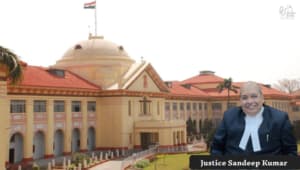AMARAVATI, September 11 - In a significant ruling today, the Andhra Pradesh High Court revised the compensation in a property-related dispute that escalated into violence, enhancing the payout to Rs.8.55 lakh. The case, which drew attention for its complex intertwinement of civil and criminal proceedings, involved a grievously injured agriculturist, Bhavanam China Venkata Reddy, who fought for compensation after a violent encounter with Dantla Subba Reddy and others.
Background of the Case
The legal battle began in 2006 when a long-standing property feud spiraled out of control. Bhavanam China Venkata Reddy alleged that the defendants dismantled his compound wall without authority, prompting a confrontation the next morning. The situation turned violent, with the plaintiff claiming he was attacked with a knife, resulting in severe injuries, including a subarachnoid and intraventricular hemorrhage.
Reddy underwent extensive treatment across multiple hospitals, accumulating medical bills exceeding Rs.5 lakh. His condition left him with permanent disabilities, including partial paralysis and vision impairment. Meanwhile, the defendants argued that the plaintiff and his relatives were the aggressors, exercising private defense in their own right. This tangled dispute involved simultaneous civil and criminal cases.
Also Read : Supreme Court Orders Husband to Pay ₹10 Lakh for Daughter’s Marriage After Upholding Divorce
Court's Observations
The bench, led by Justice Ravi Nath Tilhari and Justice Maheswara Rao Kuncheam, meticulously examined the pleadings, oral testimonies, and documentary evidence. The court pointed out that despite the defendants' claims, the criminal proceedings had resulted in the conviction of the first defendant under Section 326 of IPC. The defense's contention that the civil suit was not maintainable due to ongoing criminal proceedings was firmly dismissed, citing Section 357 of the Criminal Procedure Code.
''The real rationale behind this statutory framework is to avoid double benefit by both civil and criminal courts,'' the bench observed,
reinforcing the parallel legitimacy of both civil and criminal remedies in cases of tortious liability.
A critical finding was that the trial court had undervalued the plaintiff's disability at 40%, basing it largely on five photographs showing the plaintiff climbing stairs- a reasoning the High Court found unscientific and unjustified. Instead, expert medical testimony supported a 70% permanent disability, leading the court to settle on a functional disability of 50%.
Final Decision
In its judgment, the High Court increased the compensation from Rs.4.04 lakh initially granted by the trial court to a revised total of Rs.8.55 lakh. This sum included Rs.4.8 lakh for loss of income due to disability, Rs.1 lakh for medical expenses, Rs.50,000 for pain and suffering, Rs.75,000 for attendant charges, and Rs.1.5 lakh recognizing the adverse impact on the plaintiff's marital prospects.
The court ordered the defendants to pay this enhanced compensation along with 9% interest from the date of the suit, i.e., March 31, 2009, until payment. Additionally, a 6% future interest was mandated on the awarded sum.
The defendants' separate appeal aiming to overturn the compensation was dismissed, and no costs were imposed on either party. The High Court's decision thus stands as a firm testament to judicial scrutiny balancing civil and criminal proceedings in India's complex legal landscape.
Case Title: Bhavanam China Venkata Reddy vs Dantla Subba Reddy and Others
Case Number: First Appeal Nos. 1025 and 233 of 2016















